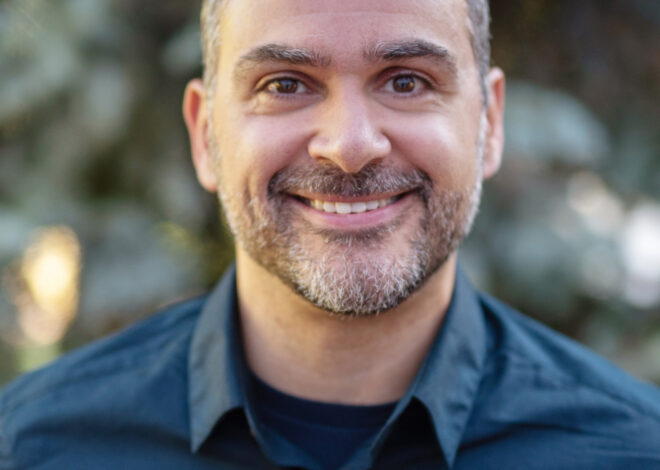
Exploring the Latest Solar Storage Solutions
The advances in solar storage solutions reflect a rapidly evolving sector. Lithium-ion batteries continue to dominate due to their efficiency and durability. However, innovative technologies like solid-state and flow batteries are gaining attention for their potential advantages. As energy demands rise, the integration of artificial intelligence into energy management systems is becoming increasingly relevant. These developments raise critical questions about the future landscape of solar energy storage and its broader implications.
Understanding Solar Energy Storage Systems
How do solar energy storage systems enhance the efficiency of renewable energy? These systems play an essential role in maximizing the utility of solar power by capturing excess energy generated during peak sunlight hours. By storing this surplus energy, they guarantee that it can be accessed during periods of low sunlight, such as nighttime or cloudy days, thereby providing a continuous power supply. Additionally, energy storage systems help mitigate the fluctuations inherent in solar energy production, stabilizing the grid and reducing reliance on fossil fuels. This capability not only enhances energy reliability but also contributes to cost savings for consumers. Furthermore, the successful integration of renewable energy sources is crucial for achieving a sustainable future. Overall, solar energy storage systems are critical for optimizing renewable energy use and fostering a sustainable energy future.
The Role of Lithium-Ion Batteries
Although various battery technologies exist, lithium-ion batteries have emerged as the dominant choice for solar energy storage systems due to their high energy density and efficiency. These batteries enable homeowners and businesses to store excess solar energy generated during the day for use during nighttime or cloudy periods. Their lightweight design and compact size facilitate easier installation and integration into existing solar setups. Additionally, lithium-ion batteries exhibit a longer lifespan compared to traditional lead-acid batteries, often providing several thousand charge cycles. The rapid charging capabilities further enhance their appeal, allowing for optimized energy management. Their proven reliability and performance make them an essential component in the shift toward sustainable energy solutions, reinforcing the growing adoption of solar power worldwide. Furthermore, investing in renewable energy technologies like solar storage systems contributes to a more sustainable future.
Emerging Technologies in Solar Storage
As the demand for efficient solar energy storage continues to grow, innovative technologies are emerging to enhance the capabilities of existing systems. One notable advancement is the development of solid-state batteries, which promise increased energy density and improved safety compared to traditional lithium-ion batteries. Additionally, flow batteries are gaining attention for their scalability and longer cycle life, making them suitable for larger solar installations. Researchers are also exploring the potential of organic photovoltaic materials, which could lead to lower-cost and environmentally friendly energy storage options. Moreover, advancements in artificial intelligence are optimizing energy management, allowing for better integration of solar storage systems with grid demands. Together, these technologies represent a significant leap towards more sustainable and reliable solar energy solutions. Furthermore, AI technology is enhancing diagnostics and improving health outcomes in various fields, showcasing the broader applications of AI in different industries.
Comparing Different Solar Storage Solutions
When evaluating solar storage solutions, it is essential to contemplate factors such as efficiency, cost, and application suitability. Various technologies, including lithium-ion batteries, lead-acid batteries, and emerging alternatives like flow batteries, present distinct advantages and limitations. Lithium-ion batteries are notable for their high energy density and longer life cycles, making them a popular choice despite higher upfront costs. In contrast, lead-acid batteries are more affordable but offer shorter lifespans and lower efficiency. Flow batteries, while still developing, promise scalability and longevity, appealing for larger applications. Ultimately, the choice of storage solution depends on individual energy requirements, budget constraints, and long-term sustainability goals, making it vital for users to assess their specific needs before making a decision. Practicing mindfulness can help individuals enhance overall well-being as they navigate these choices.
The Future of Solar Energy Storage
The evolution of solar storage solutions will play a pivotal role in shaping the future of renewable energy. As technology advances, energy storage systems are expected to become more efficient, cost-effective, and environmentally friendly. The development of next-generation lithium-ion batteries, solid-state batteries, and alternative technologies like flow batteries will enhance energy density and lifespan. This progress will enable greater integration of solar power into the grid, facilitating energy access during peak demand and reducing reliance on fossil fuels. Innovations in smart grid technology and artificial intelligence will optimize energy distribution and consumption patterns, further enhancing the viability of solar energy. Ultimately, the future of solar energy storage looks promising, offering sustainable solutions to meet global energy demands. Embracing minimalism in consumption can also contribute to a more sustainable future by prioritizing experiences over material possessions.
Frequently Asked Questions
How Long Do Solar Storage Batteries Typically Last?
The longevity of solar storage batteries generally ranges from 5 to 15 years, depending on factors such as usage patterns, environmental conditions, and maintenance practices. Proper care can greatly enhance their lifespan and efficiency.
Can Solar Storage Systems Be Installed in Any Location?
Solar storage systems can generally be installed in various locations, but factors such as local regulations, available space, and environmental conditions must be considered to guarantee peak performance and compliance with installation requirements.
What Maintenance Do Solar Storage Systems Require?
Solar storage systems require regular maintenance, including checking battery health, cleaning connections, and ensuring proper ventilation. Periodic inspections and software updates are also essential to optimize performance and extend the lifespan of the system.
Are There Government Incentives for Solar Storage Solutions?
Government incentives for solar storage solutions often exist, including tax credits, rebates, and grants. These incentives aim to promote renewable energy adoption, encouraging individuals and businesses to invest in sustainable energy technologies and reduce overall costs.
How Do Solar Storage Systems Affect Home Resale Value?
Solar storage systems generally enhance home resale value by appealing to environmentally conscious buyers and reducing energy costs. Prospective homeowners often view these systems as valuable investments, potentially increasing overall market attractiveness and property worth.
Conclusion
To summarize, the landscape of solar energy storage is rapidly evolving, driven by advancements in lithium-ion technology and the emergence of innovative solutions like solid-state and flow batteries. These developments, coupled with artificial intelligence integration, promise to enhance energy management and efficiency. As the demand for sustainable energy solutions grows, the continuous improvement and diversification of solar storage technologies will play a pivotal role in shaping a greener and more resilient energy future.



